
We hear so much about persecution in the Church in China. The Times have an article with a different story.
From
March 28, 2009





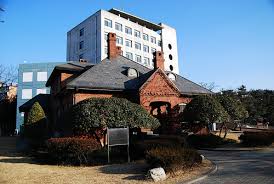


‘we cultivate Christian Humanity in students that enables them to practice a spirit of openness, sharing and service. We encourage students to be independent and open-minded….to share with others ….to serve others first’





‘Way back in the 20th century, Seoul was a bustling Metropolis looking to make its mark on the world stage. With unbridled energy, spirited passion and a sense of identity forged by its own Asian mystique and 21st century dreams of peace and prosperity, Seoul can now claim place as one of the world’s great cities. It’s nothing like you expected and everything you hoped for.’

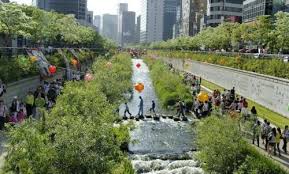






"They misunderestimated me." — Bentonville, Ark., November 6, 2000
"There's an old saying in Tennessee — I know it's in Texas, probably in Tennessee — that says, fool me once, shame on — shame on you. Fool me — you can't get fooled again." — Nashville, Tenn., September 17, 2002
"Families is where our nation finds hope, where wings take dream." — LaCrosse, Wis., October 18, 2000
"I know the human being and fish can coexist peacefully."— Saginaw, Mich., September 29, 2000
"Too many good docs are getting out of the business. Too many OB-GYNs aren't able to practice their love with women all across this country." —Poplar Bluff, Missouri, September 6, 2004

"Our enemies are innovative and resourceful, and so are we. They never stop thinking about new ways to harm our country and our people, and neither do we." —Washington, D.C., August 5, 2004
"We were trying to say something differently, but nevertheless it conveyed a different message". -January 12, 2009 Press Conference (Time Magazine, January 26, 2009, p13).
"I know how hard it is for you to put food on your family." — Greater Nashua, N.H., January 27, 2000
"I understand small business growth. I was one." — New York Daily News, February 19, 2000
"Rarely is the questioned asked: How is our children learning?" — Florence, S.C., January 11, 2000
"You teach a child to read, and he or her will be able to pass a literacy test." — Townsend, Tennessee, February 21, 2001





Lead me God; to the place you have for me, at the pace you want for me. If I walk or run or wait in stillness, give me the tenacity to trust
If hope at times is hard to hold, you are still God. If dreams are dashed and desires delayed, you are still God. Still me, God, to know you
You hide the path you want for us under the path we walk. You bury wisdom in the places we pass. Give us, God, the determination to dig.
Tonight the tank is empty God. No reserve. No spark. Battery flat. But you are life and light, fuel and fulness. Plug me in, God: charge me



Baroness Cox of Christian Solidarity Worldwide describes the book as 'Brilliant and compelling...raises issues which are worthy of serious consideration and discussion'
A British imam's daughter is living in fear of her life under police protection after she received death threats from her family for converting to Christianity.
The young woman, aged 32, whose father is a Muslim imam in the north of England, has moved house 45 times to escape detection by her family since she became a Christian 15 years ago.
Hannah, who uses a pseudonym to hide her identity, told The Times how she became a Christian after she ran away from home at 16 to escape an arranged marriage.
The threats against her became more serious a month ago, prompting police to offer her protection in case of an attempt on her life.
She was speaking on the eve of the launch of a new charity in London today to promote greater religious awareness. Muslims in Britain who wish to convert to Christianity are living in fear of their lives because of Islamic apostasy laws, a senior Church of England bishop will warn at the invitation-only launch in west London.
The Bishop of Rochester, Dr Michael Nazir-Ali, will claim "freedom to believe" is under threat in Britain because of Islamic hostility to conversion.

Intellectuals
Contemplative
Enthusiasts
Caregivers
Activists
Ascetics
Traditionalists
Sensates
and Naturalists


Sensate Christians want to be lost in the awe, beauty, and splendor of God. They are drawn particularly to the liturgical, the majestic, the grand. They want to be filled with sights, sounds, and smells that overwhelm them. The five senses are God's most effective inroad to their hearts.
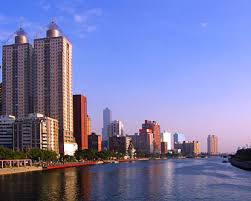

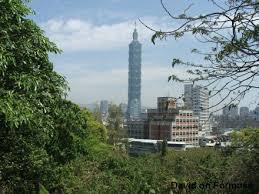
The last weekend in February I left Japan to go to Taiwan for a long weekend to visit Catherine, a CMS Mission Partner in Taipei. Osaka and Taiwan are sister dioceses. I had no idea what Catherine was planning for those 4 days but I had the most amazing time and a brief but real introduction to the Taiwanese church. Taiwan was occupied by the Japanese for over 40 years and at the end of the second World War they just left. Anglican Churches had just been for the Japanese and so there was no Anglican Church until the Americans reestablished them and Taiwan became a Missionary Diocese of the Episcopal Church, which it still is. Most of it is younger and more vibrant than the Anglican Church here.
I meet Mama Tan (a relation of Amy Tan - Joy Luck Club) who is now 87. She came to Taiwan at the age of 24 to marry and she never saw her parents again. Her father was imprisoned twice in Communist China for his Taiwan connection. The 2nd time he died there. She showed us a file of some of her father’s papers including the accusations against him that people had been “forced” to write. Her family, three sons and a daughter are all Christians and have a T-shirt Company. Catherine lives on the campus of St John’s University. The Chapel is also the Parish Church and has a full programme for students as well as church people. Mother Tan had shown me the book “Living is Mission” that the house groups (Sunday afternoon one a month) were going to study. They were supposed to read the 1st Chapter, She had already read the whole book.Catherine’s group of young people meets every week and usually studies in English. They have some Japanese speakers so I was asked to give my testimony in Japanese and they translated into Chinese. It was great fun. The last morning an older man who is just finishing at Theological College and his wife drove us up into the mountains to see cherry blossom and then in a valley fields of arum lily being grown. Then they drove me to the airport. Many new friends, beautiful scenery. delicious Chinese food. It was a very blessed time and only two and a half hours from Osaka by plane!!!.
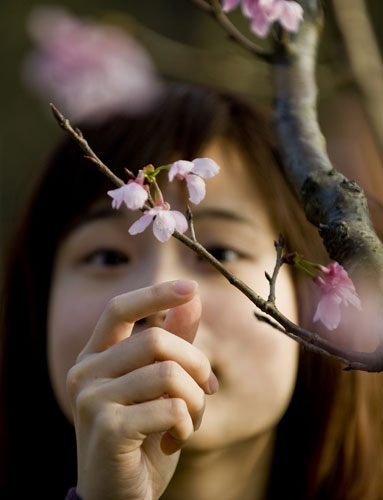








First things first -- and there are a lot of firsts in this movie. As half the world knows by now, this is Shoaib Mansoor's first cinematic venture. Most of the cast, including all the lead actors except Shaan, also make there silver-screen debut with this film. The film is also the first truly honest issue-based film from Pakistan, and now, is also one of the highest grossing ones in Pakistan. ...... in a nutshell, its about two musician brothers who go off on a different tangent through the course of their lives, one joining an extremist movement and the other pursuing college education in the States. Shaan and Fawad Khan, of course, enact the characters of the two brothers. Iman Ali plays the British cousin forced into a marriage she doesn't want.
The best thing about the film is its seamless flow and the REALLY natural settings and dialogues. The upper middle class setting of the brothers' household is something that a lot of Pakistanis would be able to relate to. I definitely could, and the film also correctly portrays the moderate leanings of the majority of the population in that country. The film shifts continuously between US, Lahore and the rather backward areas in Afghanistan, and the individual vignettes are so engrossing that you don't want them to end...

